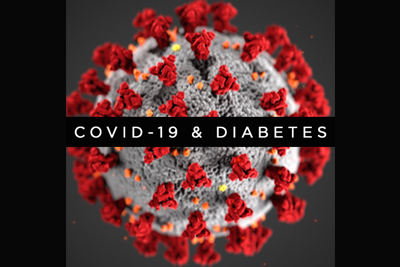COVID-19 & Diabetes; What You Need to Know
SDRI Provides Online Resource for Diabetes Community
Sansum Diabetes Research Institute (SDRI), a global leader in diabetes research, education, and clinical care, is committed to helping the diabetes community now and always. SDRI’s website, diabetestravel.sansum.org, is a hub of current and trustworthy information for the diabetes community as we try to safely navigate the coronavirus pandemic.
SDRI created the new online resource, COVID-19 and Diabetes, at diabetestravel.sansum.org with frequently updated links to the CDC, American Diabetes Association, Johns Hopkins University, JDRF, Beyond Type 1, Medscape, Joslin Diabetes Center, and many more, in English and Spanish.
“It’s important for all people with diabetes to be extra vigilant. As we learn more we learn just how incredibly contagious this virus is even in people without symptoms,” said Dr. Kristin Castorino, Senior Research Physician at SDRI. “There’s a lot of confusing and sometimes erroneous information out there and the purpose of us having this website is we have already vetted the material and are providing links to what we think are reputable sources with accurate information pertaining to diabetes.”
While there is still much to learn about COVID-19, people with diabetes should consider themselves at higher risk of more severe outcomes if they contract this or other viral infections.
“One thing we do know for sure is when your average blood sugar is high (above 200 mg/dL which is associated with an A1C level of 8.5% or more), your body has more difficulty fighting off any type of infection. Your immune response to infection doesn’t work as well as it does when your average glucose values are in the target ranges,” explained Dr. Castorino.
“Rather than panic, it is better to put our energy and efforts into finding areas to improve glucose control; it is a time to take your diabetes care up a notch,” Dr. Castorino added. “For example, some of the highest highs are after a low blood sugar. Perhaps there are ways to reduce lows which will then reduce the rebound high blood sugar. Another way is adding more fresh fiber like vegetables or legumes into your meals. If you need help achieving your glucose targets, reach out to your endocrinologist or diabetes care provider, as many providers are able to help people via phone, telehealth appointments or even email.”
This week we will be filming Endocrinologist and SDRI Board Trustee, Dr. Daniel Berger’s most common recommendations to patients and will post this to diabetestravel.sansum.org, as well.
Psychiatrist and a past President of the SDRI Board Trustees, Robert Nagy, M.D., says now is the time of most acute stress. Once we get into a new pattern, it will get easier: “Look at this as being time limited.”
Dr. Nagy recommends the following 3 things to decrease stress and increase resiliency:
- Have a 3-month supply of prescriptions and medical supplies. “Having what you need reduces anxiety; it introduces less uncertainty.”
- Exercise is important for physical as well as mental health.
- Be strict about social distancing but keep up your social contacts. “Don’t take social distancing as being social isolating.”
“Don’t spend too much time in your head. If you have people to talk to, use that. We can’t hug each other now, but use the technology we have now to communicate with loved ones. That’s a powerful anti-depressant; powerful against anxiety,” advised Dr. Nagy. “And look at the SDRI website (diabetestravel.sansum.org). Access it. That knowledge is powerful.”
COVID-19 symptoms include fever, dry cough and shortness of breath. If you have these symptoms, call your primary care physician or diabetes care specialist.

